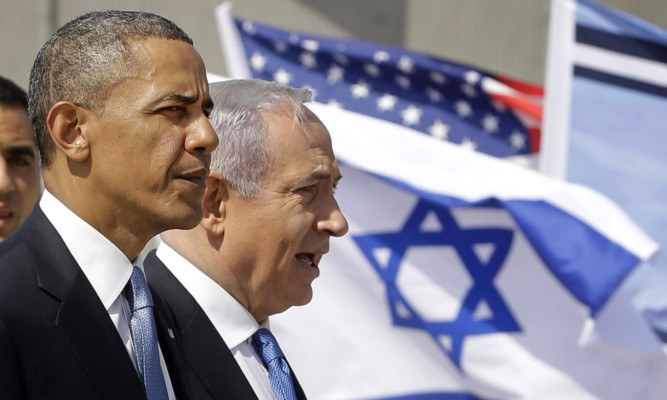US President Barack Obama promised to work closely with Israel and do whatever is necessary to keep Iran from obtaining nuclear arms, “the world’s worst weapons”.
He also pledged to investigate whether chemical weapons were used this week in neighbouring Syria’s two-year-old civil war.
After meeting with Israeli prime minister Benjamin Netanyahu, Mr Obama said of Iran’s nuclear ambitions: “We prefer to resolve this diplomatically and there is still time to do so.”
However, he added “all options are on the table” if diplomacy falls short.
“The question is, will Iranian leadership seize that opportunity,” he added.
The president said Iran’s past behaviour indicates that “we can’t even trust yet, much less verify”.
Mr Netanyahu, at Mr Obama’s side for a joint news conference, said while he appreciated US efforts to thwart Iran’s pursuit of nuclear weapons through diplomacy and sanctions, those tools “must be augmented by a clear and credible threat of military action”.
“I am absolutely convinced that the president is determined to prevent Iran from getting nuclear weapons,” Mr Netanyahu said. “I appreciate that.
“I appreciate the fact that the president has reaffirmed, more than any other president, Israel’s right and duty to defend itself by itself against any threat.”
The Israeli leader said he and Mr Obama agree it would take Iran about a year to manufacture a nuclear weapon if it tries to do so.
Although preventing Iran from developing a nuclear weapon is a priority of both Israel and the United States, Mr Netanyahu and Mr Obama have differed on precisely how to achieve that.
Israel has repeatedly threatened to take military action should Iran appear to be on the verge of obtaining a bomb.
The US has pushed for more time to allow diplomacy and economic penalties to run their course, although Mr Obama insists military action is an option.
Mr Obama noted the difficulty of finding a path forward in the broader quest for Middle East peace, acknowledging in recent years “we haven’t gone forward, we haven’t seen the kind of progress we would like to see”.
“This is a really hard problem,” he said.
